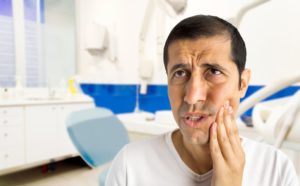 The sun’s coming out and weather’s getting warmer, so you’re probably spending more time being active outside. It’s nice to bask in the sun and go on new adventures, but summer is the season for dental emergencies. Accidents happen and are impossible to avoid, but knowing what to do and how to reduce your risk can help make this season smooth-sailing. Your emergency dentist in Spring Hill lets you in on the most common dental emergencies and how to avoid them.
The sun’s coming out and weather’s getting warmer, so you’re probably spending more time being active outside. It’s nice to bask in the sun and go on new adventures, but summer is the season for dental emergencies. Accidents happen and are impossible to avoid, but knowing what to do and how to reduce your risk can help make this season smooth-sailing. Your emergency dentist in Spring Hill lets you in on the most common dental emergencies and how to avoid them.
Tips on How to Handle Common Dental Emergencies
It’s important that no matter what your dental emergency is, the first thing you should do is visit your dentist in Spring Hill or an emergency room as soon as possible. With that in mind, here are some of the most common dental emergencies and what you can do to minimize the damage:
- Knocked-Out Permanent Teeth— In an attempt to save your tooth, always keep it moist by either putting it back its socket, between your cheek and gums or in a glass of milk. While doing this, try not to touch the root of the tooth, and attempt to get to your dentist within the hour.
- Cracked or Chipped Tooth— Immediately swish warm water around your mouth to try to clean the area. If your face begins to swell up, placing a cold compress can help.
- Severe Toothache— When a toothache becomes unbearable and continues to get worse, it could be a sign of decay or a dental abscess. An infected tooth must be treated as soon as possible to prevent it from spreading to other areas. You can use an over-the-counter pain reliever like ibuprofen or rinse with saltwater to try to dislodge anything that may be stuck.
For smaller issues like if you bite your tongue or lip, cleaning the area with warm water and adding a cold compress can help relieve the pain. Also, for objects that may be stuck between your teeth, gently maneuvering floss around the affected area could help dislodge it.
Avoiding Dental Emergencies
You may not be able to completely prevent dental emergencies this summer, but there are some ways that you can reduce your risk. Some simple preventive measures you could take include:
- Wearing a mouthguard when you’re playing sports can help reduce the impact that a flying baseball or street hockey puck may have on your teeth.
- Avoid chewing or crunching on hard and sticky foods like rock candy, ice, and popcorn kernels. All of these can put you at risk of cracking or chipping a tooth.
- Never use your teeth as tools. Using your teeth to rip open packaging, hold pens and pencils, or tear tape off a roll can not only wear down your enamel, but also put you at risk for chipping or cracking a tooth.
If your mouth is hurting, call your dentist so they can offer you immediate advice and instruction. Even injuries that seem like they aren’t big deals can have huge impacts on your oral health. If you delay getting the care you need, you’re only opening the door to developing larger oral health problems in the future. Finding a great emergency dentist in your area can help you be prepared for the unexpected this summer.
About the Author
Dr. Keith Chapman has spent 8 years in West Africa providing crucial emergency aid in Liberia. He knows how to work quickly and efficiently under pressure and can ease your worries. He strives to get to know each of his patients and provide them with the individualized care they need. For any questions or to schedule an appointment, visit Family Dental Associate’s website or contact 615
